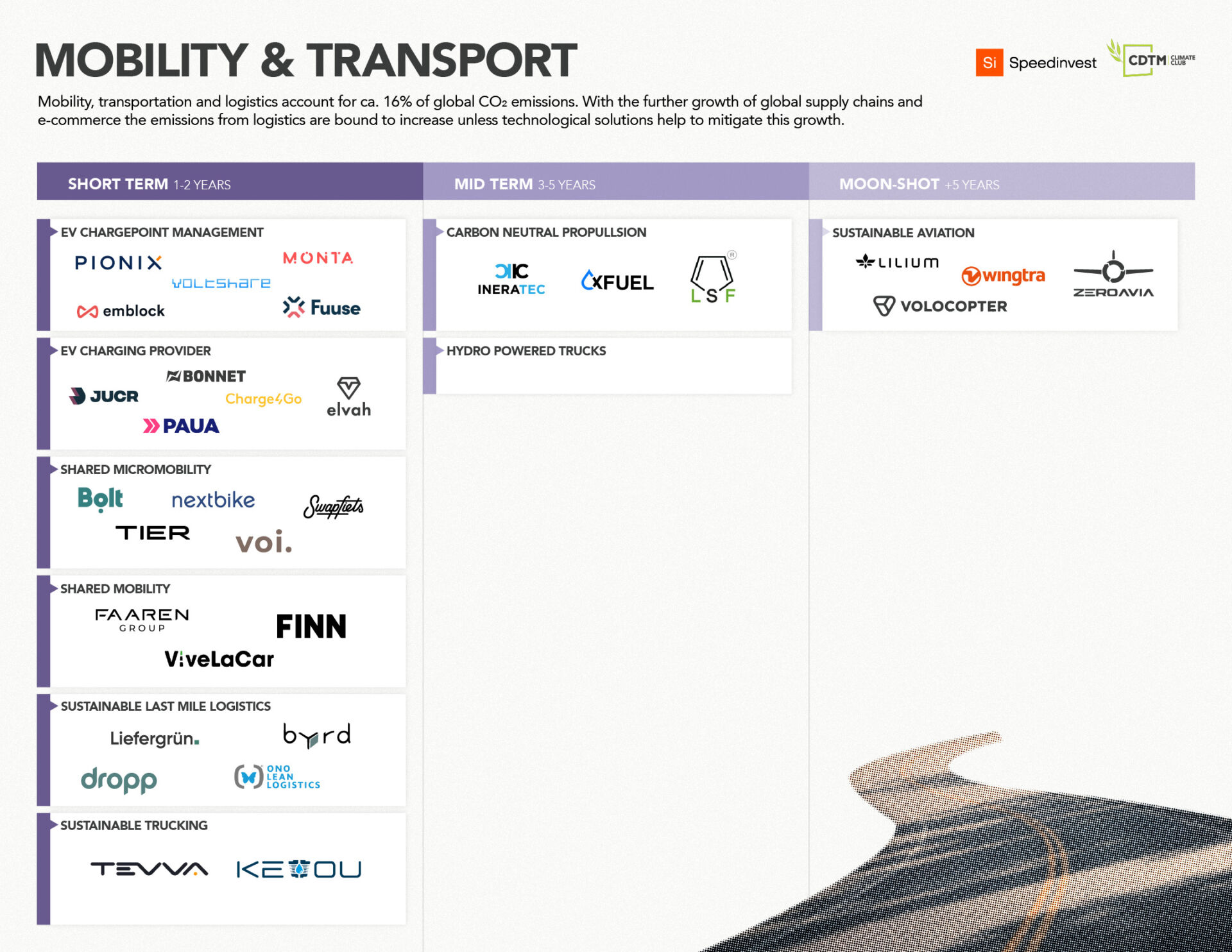
Mobility, transportation and logistics account for around 16% of global Co2 emissions. With the further growth of global supply chains and e-commerce, emissions from logistics are bound to increase unless technological solutions help to mitigate this growth.
Our investment hypothesis is driven by:
1 Personal mobility
- Main scepticism from consumers apart from the price of a new EV remains maximum driving range
- Charging infrastructure needs to be increased massively. Currently, there are only 330,000 chargepoints in the EU, compared to an expected 40m EVs by 2030
- There are many technological solutions to connect chargers from different providers and make the interaction as seamless as possible – however, the EU is lacking in installations
2 Last mile & urban logistics
- Last mile logistics account for 30-50% of delivery costs of B2C parcels and is a major driver of carbon emitted in logistics. Making the last mile more efficient is both an economic and ecological imperative
- Make delivery more sustainable by introducing low carbon modes of transportation for last mile logistics such as EVs, e-bicycles etc.
- Reduce mileage through better routing, higher delivery rates, bundling routes etc.
- Reduce the footprint of urban personal mobility by increasing use of public transport and shared (micro-) mobility
3 Long-distance transportation
- Hydrogen technology could be key to making trucking & shipping more sustainable, though more R&D is needed in this area
- EU introduced an obligation to increase the share of sustainable aviation fuel used from 2025 onwards
- Multimodal transport can increase sustainability by combining various modes such as trains, trucks & ships. However this requires further digitization of logistics



